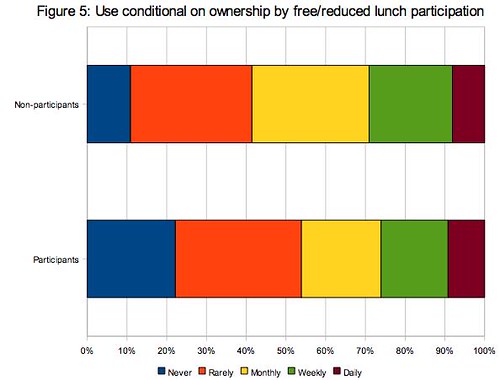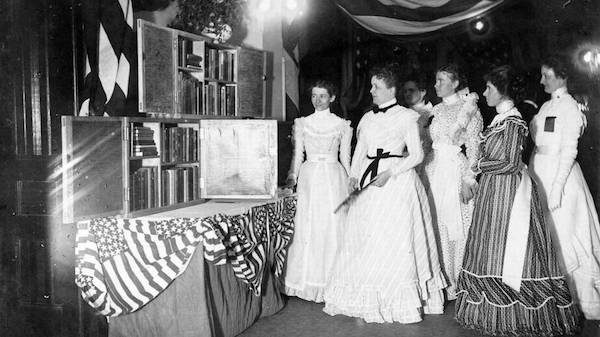
Interested in the actual educational effects of giving laptops to students? Some interesting conclusions from a paper by Jacob Vigdor entitled Scaling the Digital Divide: Home Computer Technology and Student Achievement (pdf). The study is a North Carolina-wide look at who has access to broadband, home computers and what the test score correlations are with these facts, if any. A few notable pullquotes.
[T]he introduction of home computer technology is associated with modest but statistically significant and persistent negative impacts on student math and reading test scores. Further evidence suggests that providing universal access to home computers and high-speed internet access would broaden, rather than narrow, math and reading achievement gaps.
[T]he introduction of high-speed internet service is associated with significantly lower math and reading test scores. Moreover, broadband internet is associated with wider racial and socioeconomic achievement gaps. One interpretation of these findings is that home computer technology is put to more productive use in households with more effective parental monitoring.
Students who own a computer but never use it for schoolwork have math test scores nearly indistinguishable from those without a home computer, while scoring slightly better than reading. Students reporting almost daily use of their home computer for schoolwork score significantly worse than students with no computer at home.
Students who gain access to a home computer between 5th and 8th grade tend to witness a persistent decline in reading and math test scores. There is little evidence that more intensive computer use for schoolwork offsets these negative effects.
Surprised? I was, a little [dweinberger]




